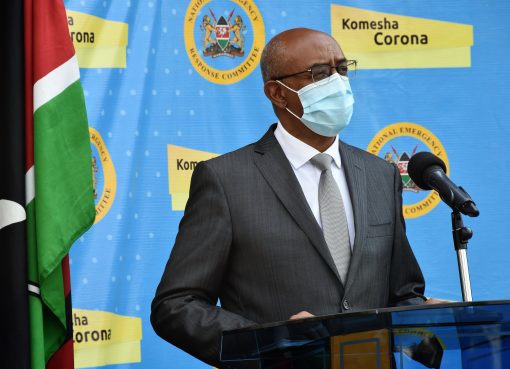Kenya is on the verge of green energy transformation that will be instrumental to economic innovations.
The country is the largest producer of renewable energy in Africa and ninth globally with capacity of 700 MW of geothermal energy.
The proportion of renewable energy namely, hydropower, geothermal, wind and solar which is at 70 percent has now surpassed diesel-generated electricity.
Speaking Friday during a Global Session of Science policy business forum in Gigiri, Nairobi, Environment Cabinet Secretary,Keriako Tobiko said energy security is one area which requires concerted interface between science, policy and business to identify workable and optimal investments for power generation, distribution and connection to homes, businesses and public facilities.
Kenya, the CS explained is on the verge of a major overhaul of the basic education system to introduce a competence-based education system intended to respond to this very need by integrating Science Technology Engineering and Math (STEM) training, throughout primary and secondary school.
“We intend to prepare successive generations of Kenyans that are trained in solving problems and inclined in the use of technology from a tender age and also using Education system to integrate environmental and related concerns throughout the basic education system,” he said.
He said innovative business hubs continue to emerge but in many cases they focus on enterprises that need business acceleration and not on those enterprises that are Startups, which could pose a higher risk of failure.
Green businesses, and more specifically Green Technology businesses,Tobiko added could fall in this category when Startups set up by the youth might be deemed risky and therefore incubators stand to continue playing an instrumental role in supporting this type of businesses.
Meanwhile Siim Kiisler, President of the UN Assembly and Minister of Environment for Estonia said the world cannot implement the 2030 Agenda without concrete data, which allows all to identify opportunities, ensure evidence-based decision making, direct investment and track progress.
He noted that Startups are not only transforming markets and economic growth but some are helping to save the planet.
Together with the UN tech giants, and the policy, finance and science communities, they have teamed up to launch new initiatives using cutting-edge technology to create cleaner, greener and more efficient solutions to sustainable development.
Two open-source platform initiatives, namely, international Working Group on Big Data and Artificial Intelligence Convergence and the Green Technology Startup Hub are being launched.
Acting Executive Director of UN Environment Joyce Msuya said technology through humanity’s ability to invent and innovate can help to save a great deal.
“The Fourth Industrial Revolution offers a real opportunity to create cleaner, greener and more efficient solutions to sustainable development and there is no doubt that rapid technological advancement played a major part in the troubles we face,” said Msuya
The working group aims to build an open-source platform for big data on the environment, while the Green Technology Startup Hub will act as an accelerator and incubator of start-up innovation for the environment, as it examines the enabling policies and actions required to use such innovation to transform the world into greener and more sustainable living.
These technologies are critical to the planet’s future, bearing in mind that an estimated 70 per cent of the human population will live in cities by 2050.
Today’s meeting comes prior to the fourth session United Nations Environment Assembly that will be starting on Monday and end on Friday 15.
By Wangari Ndirangu



